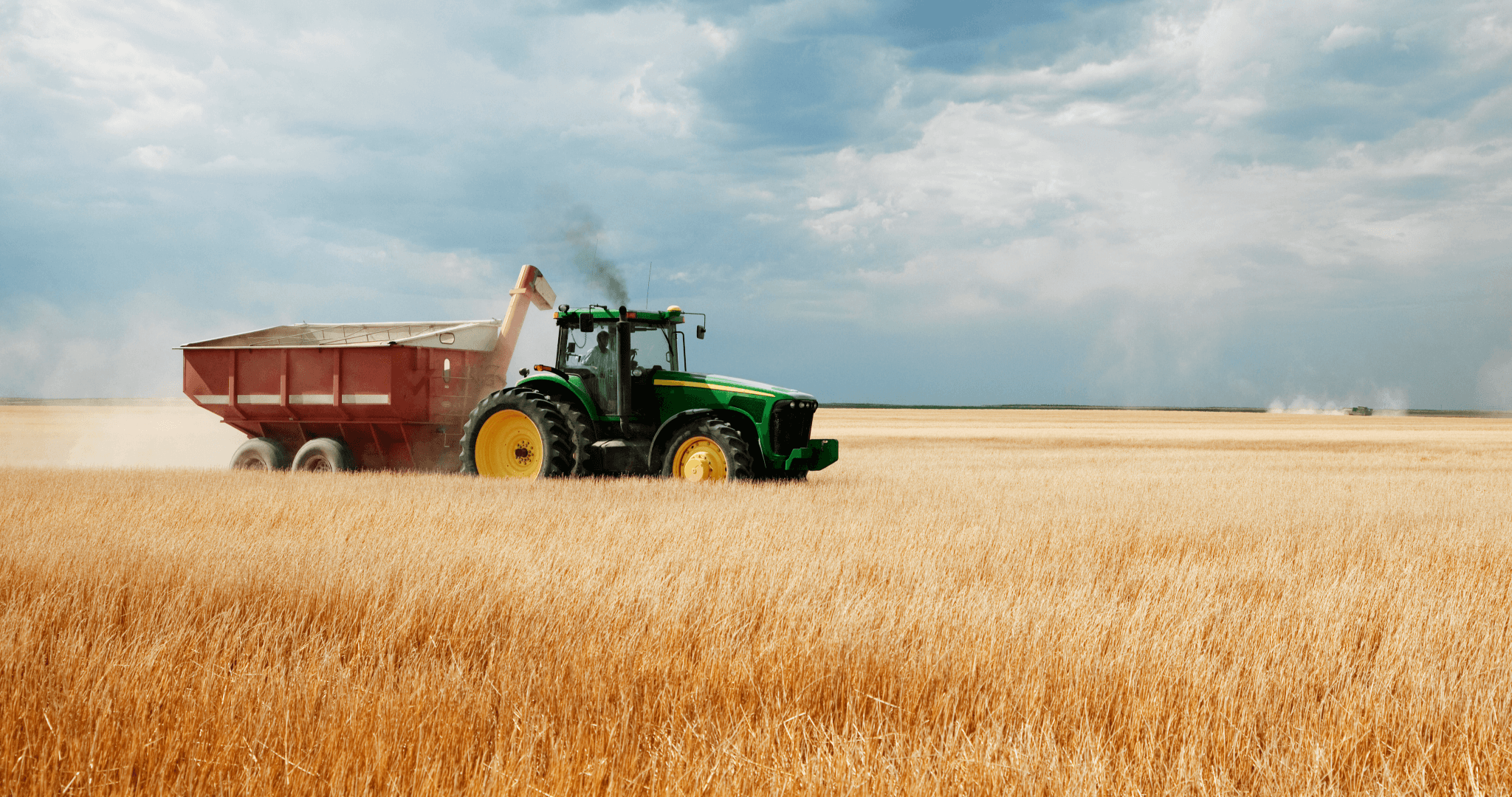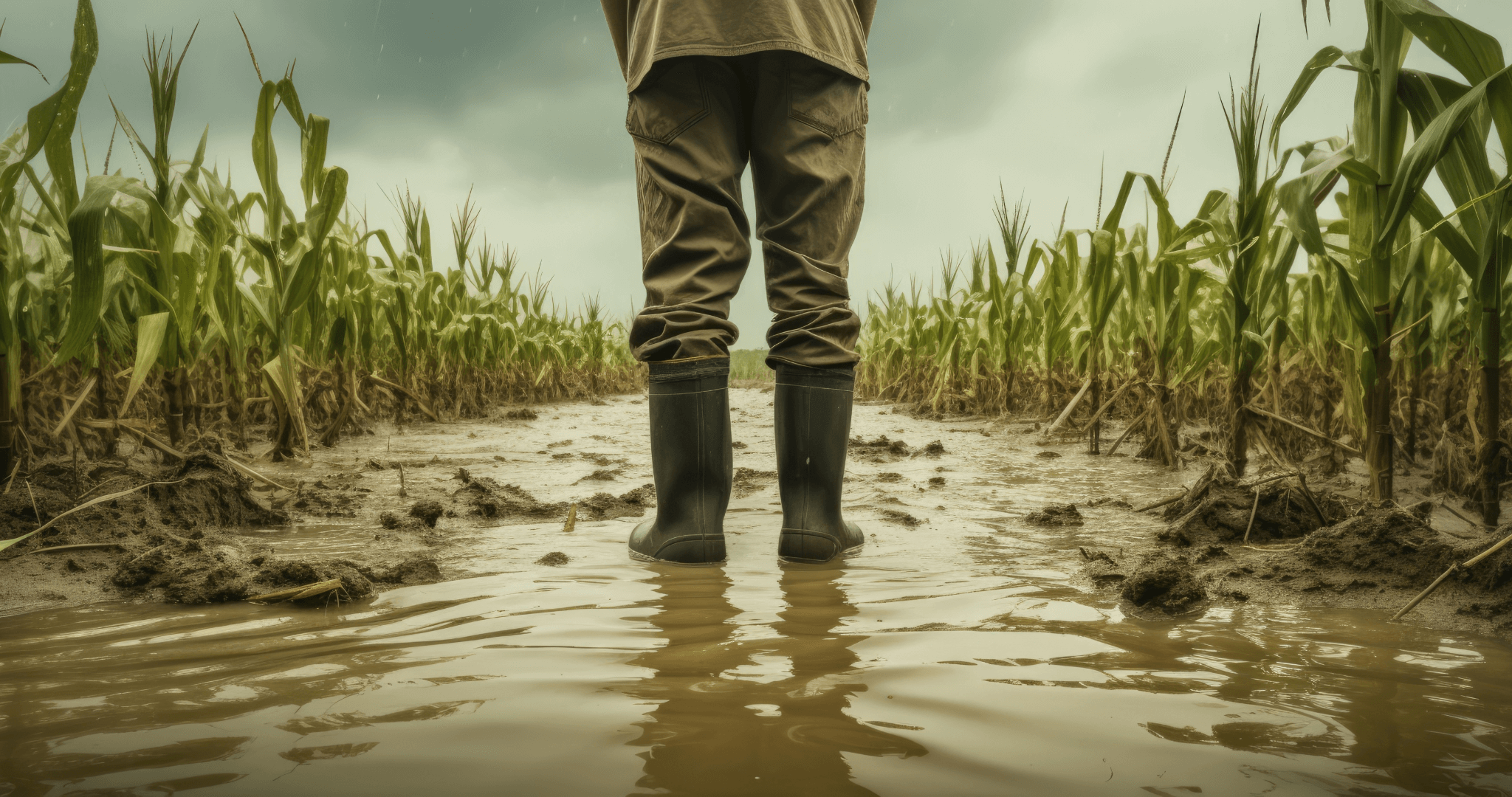A Wet Warning: The Urgent Call from UK Farmers
Posted by Emma on 10th Apr 2024 Reading Time:
According to farming organisations, the UK's food production sector is under significant stress following a period of record-breaking rainfall. This unprecedented weather has severely impacted crops and livestock, with vast areas of farmland submerged since the previous autumn.

Data from the Met Office reveals a staggering 1,695.9mm of rain fell between October 2022 and March 2024, marking the wettest 18-month period in England since records began in 1836. This has led to a stark decrease in crop yields, making the UK more dependent on wheat imports in the near future and possibly for an extended period.
The Agriculture and Horticulture Development Board (AHDB) reports noticeable increases in the prices of grain-based products, a trend that is expected to continue. Key crops such as wheat, oilseed rape, and winter barley have seen significant decreases in production - with wheat down 15%, oilseed rape reduced by 28%, and winter barley by 22%.
The challenging conditions mean the planted crops are likely to be of poor quality due to waterlogged soil, increasing the risk of crop failure. "The unfavourable weather is putting the yield at risk of being significantly reduced," states the AHDB.
The livestock sector is not spared, with the National Farmers' Union (NFU) highlighting the adverse effects of the rain and cool spring temperatures on livestock farming, particularly affecting lamb survival rates.
Rachel Hallos, vice-president of the NFU, expressed her concern, emphasising the immense pressure on UK farm businesses and the potential long-term effects on consumer produce availability. "It's no exaggeration to say a crisis is building," she remarked, pointing out the compounded challenges of rising input costs and the personal toll on farmers.

In response, the government has launched a farming recovery fund scheme, offering grants to affected farmers to help restore their land to pre-flooding conditions. Farming Minister Mark Spencer acknowledged the hardships faced by farmers and highlighted the fund as part of broader support measures aimed at enhancing flood resilience in the agricultural sector.
In the comments below, we encourage our readers to share their thoughts and reactions to this developing story. How do you perceive the impact of these weather conditions on food production and availability? Your insights are valuable to us.

